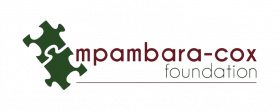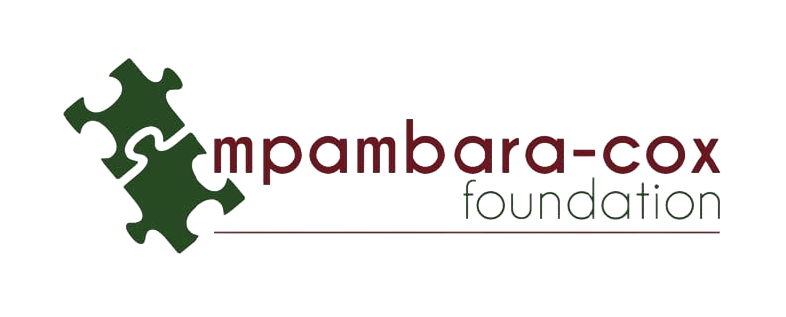About The Founder
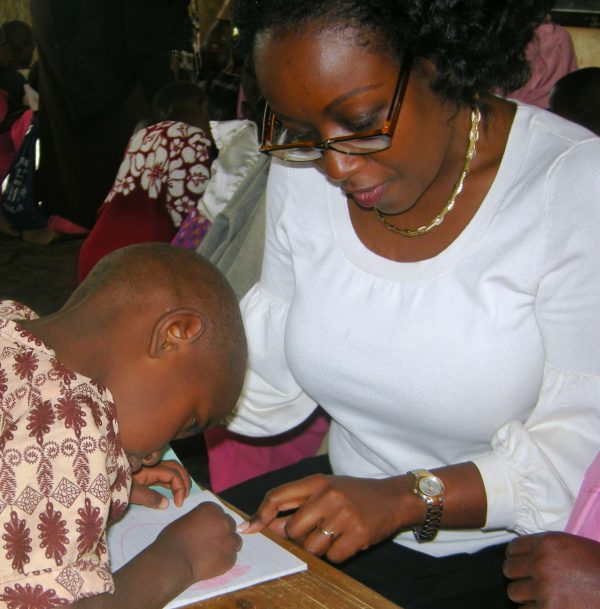
The thought of starting MCF came to me almost as a directive from above, but also as an extension of something I always wanted to do for my own children. The real urge to act came on a day as normal as any. It was a conversation I had during my weekly volunteering at my son’s elementary school in Derwood, MD in English class (May 2008) when a boy, hungry and trying to do his spelling test, flunked it when I knew very well (as a longtime volunteer in that classroom) that he could have easily passed it. The conversation we had stayed with me; he told me had chosen not to eat “the nasty breakfast” of oatmeal that his mother had offered. It made me think of what the 3rd grader had taken for granted. How could he ever understand that that choice directly fed into his score of 8/20? His focus was fleeting, his mood off and his concern for the test before him was absent, there was nothing I didn’t try to help him out.
As a mother I have always wanted my children to learn empathy authentically with a cross-cultural focus, and to get them to understand and appreciate their relative plenty. How to effectively impart that was the hard part. This encounter helped me conjure up a way. It became my goal to get that hungry boy, that failed his spelling test, to “fully” understand that that oatmeal, nasty as it might have been, was actually like a blessing, because across the world, where I came from, breakfast for the majority of children is not a given and going to school is a game-changing gift.
The work of MCF involves building bridges between and within communities to create access and an understanding that leads to progress. I chose education because I believe it is truly the only concrete thing one works hard to attain that can’t be taken away.
With a background in Economics and International Relations (B.Sc) and an MBA, I founded MCF in 2008 with a desire that my philanthropic work be cross-cultural and sustainable. The programs I design, and deliver are multi-faceted and connect different worlds. The bedrock of my ideas is always commonalities and reciprocity. My work is guided not only by my faith, but also my up-bringing in Uganda and the U.K.; work with the U.S. State Department’s diplomatic corps; extensive international exposure (living and working in Argentina, Sierra Leone, Egypt, Morocco, The Bahamas, India, Uganda, Kenya and Tanzania); knowledge of several languages and an ability to cross-culturally connect as a professional and community member whether with students, statesmen, parishioners, parents, immigrants or villagers.
Professionally, I have worked as a leader, team member and observer in different settings that include immigration, economics, infrastructure, media analysis, protocol, national security, but my most important job is that of being a homemaker, a hands-on mother raising my two children.
Since 2008, as a homemaker, with my children alongside me, I have steered MCF into an organization that has served over three million school-meals, started the only public library in Western Uganda, we included the mothers of children in a microfinance program that gives them the ability to financially become independent. Of my work in this area, I am proudest of the empathy that has grown in my kids. I am proud of my son who in 7th grade collected enough funds from his peers to put a rain-harvest tank in school for 400 rural children who had no running water, and of my daughter who at age seven was so shocked to find only benches and no desks in a kindergarten class room. Seeing the kids kneeling on the cement floor and using the benches as desks, she decided to do something about it worried “their handwriting would be bad, because the knees will start to hurt.” That December, her birthday was donations only because she had enough toys; two months later the desks were delivered.
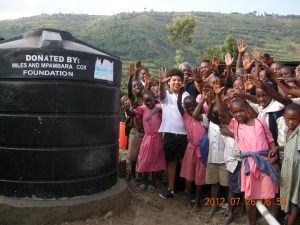
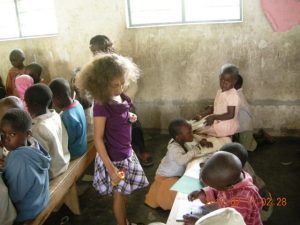
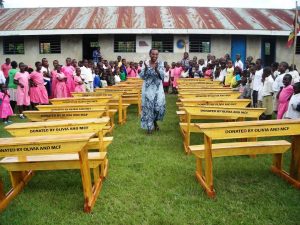
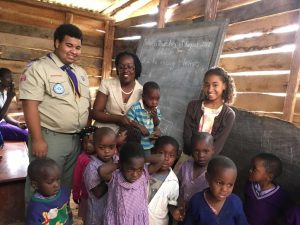
COVID-19 has shown us the vulnerability of society and the value of life itself when absolute fear and forced isolation was universal no matter one’s station in life. But it left dreams intact. I still dream of building a library in Kabale as a way to entrench literacy in a society with the poorest of reading cultures. I dream of increasing those school-meals to reach more kids, because for many, it still is their only meal of the day.
During lockdown, I designed and started two programs: one in Uganda and one here in the U.S. In Uganda “Katushoome” translated as “let’s read” is a book borrowing program that takes books into homes, and “Concrete Steps” is a robust tutoring program for children in the DMV (District of Columbia, Maryland and Virginia) who fell more than one grade level behind. The “steps” in Concrete Steps are aimed at tackling age-old education gaps.
With consistency and commonsense every program new and old remains anchored in our mission to build avenues of understanding in an interconnected world. That I hope will lead to progress, and a better place for all that are associated with this work.
Thank you for your interest in our work.
